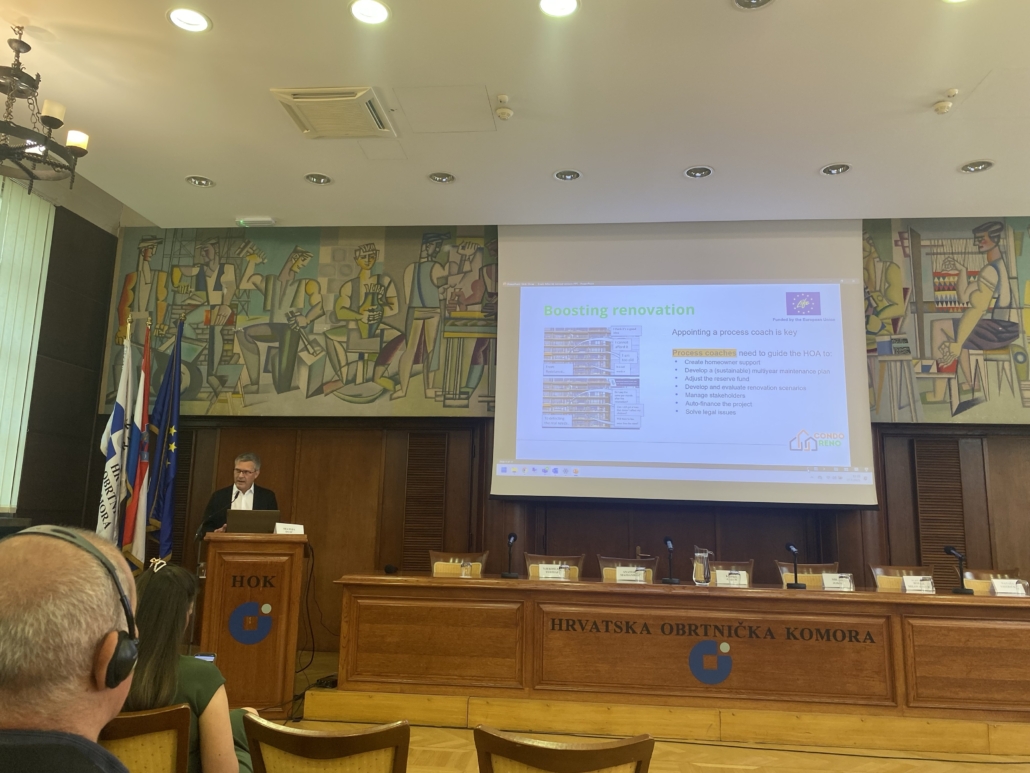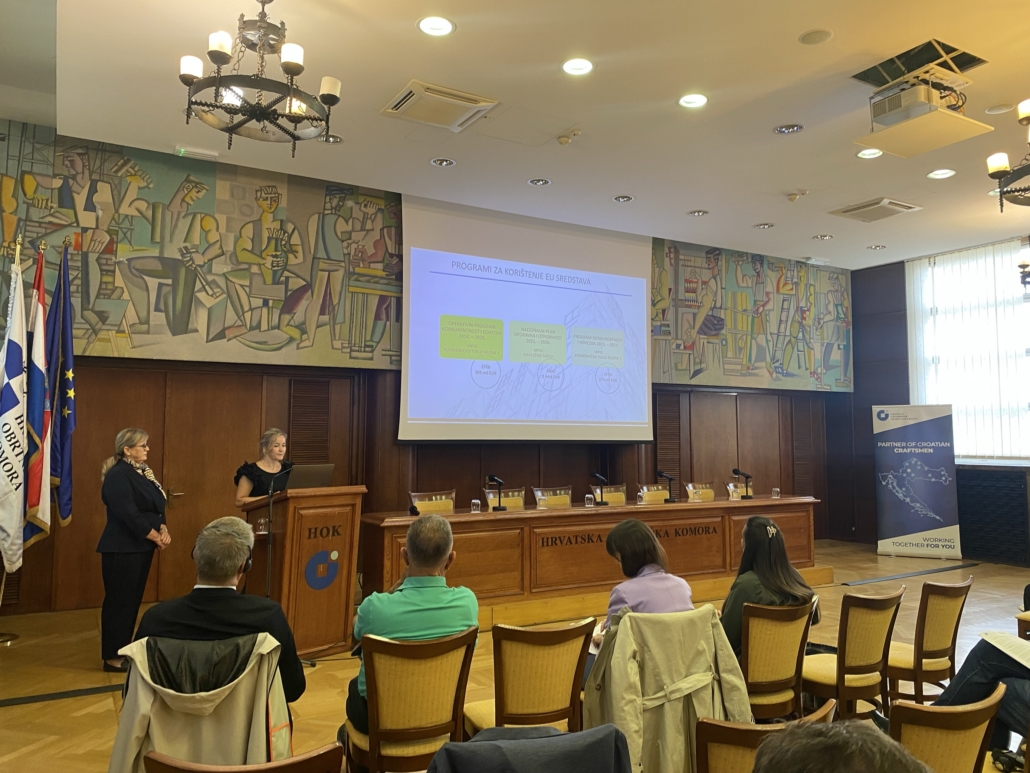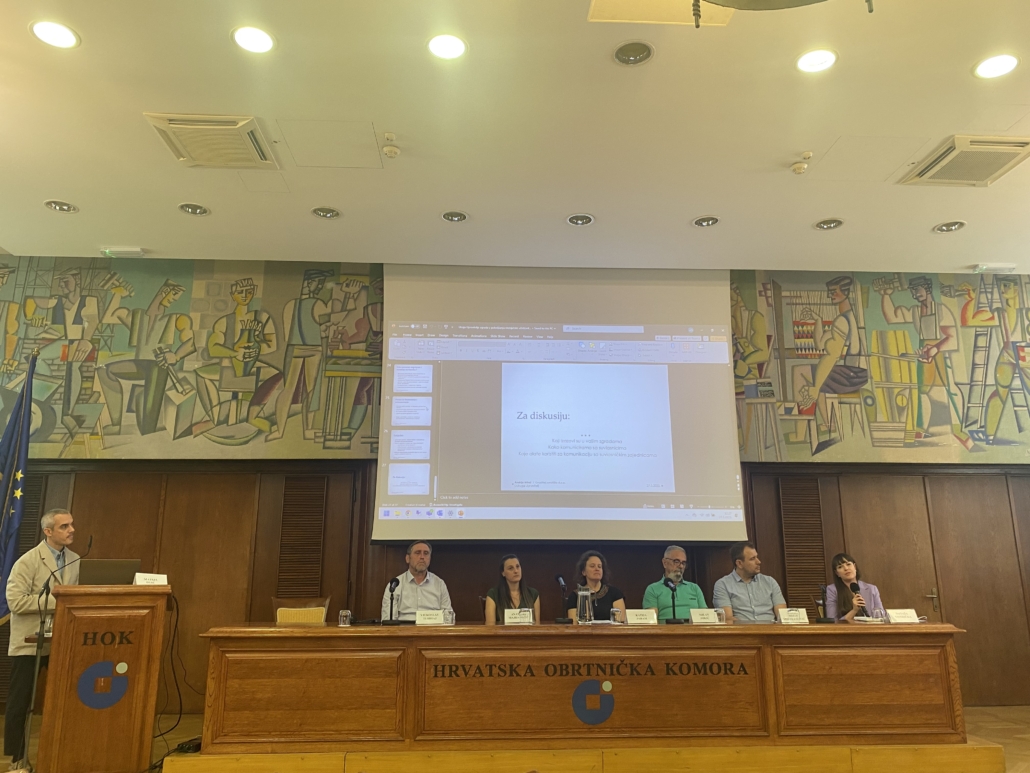Driving energy renovation in Croatia: CondoReno workshop held in Zagreb
On 27 May, the European Builders Confederation (EBC) in collaboration with the Croatian Chamber of Trades and Crafts (HOK) hosted a workshop in Zagreb to promote integrated energy renovations in Croatia’s residential building sector. Organized within the framework of the LIFE project CondoReno, the event, titled” Boosting Residential Building Renovations: European Examples and the Croatian Market”, gathered Croatian energy efficiency stakeholders, EU representatives, and renovation experts to tackle the slow pace of energy renovation in the Croatian residential building stock.
Insights from national and European experts
Opening the workshop, representatives from Croatia’s Ministry of Physical Planning outlined current priorities in building renovation, including alignment with EU goals and the need for stronger national support mechanisms. Thibault Roy from the European Commission presented the revised Energy Performance of Buildings Directive (EPBD), underlining the importance of One-Stop Shops (OSS) in guiding homeowners through complex renovation processes.
Experts then shared practical insights and best practices. Dr Bojan Milovanović (University of Zagreb) highlighted the poor energy performance of Croatia’s residential buildings and called for greater technical support for co-owners. Slavica Robić (REGEA) emphasised citizen-led initiatives and community energy projects as key to driving inclusive renovations.
Anamari Majdandžić (DOOR) presented examples from OSS centres in Zagreb and Križevci, which offer tailored legal, financial, and technical assistance. Erwin Mlecnik (TU Delft) introduced the CondoReno model, focusing on structured renovation planning, co-owner engagement, and the role of renovation “process coaches”. Finally, building manager Andrija Mihić shared real-world experiences, stressing the need for effective communication and coordinated governance within homeowner associations.
Tackling barriers to renovation
A panel of experts, including representatives from academia, tenant groups, the Ministry, and the construction sector, explored the main challenges to advancing residential renovations in Croatia. Discussions highlighted the urgent need to strengthen the skilled workforce, with concerns about the capacity of SMEs and craftspeople to meet growing renovation demands.
Panellists also pointed to legal and organisational hurdles, such as fragmented co-ownership and slow decision-making processes in homeowner associations. Clearer legal frameworks and procedural reforms were seen as essential to enable collective renovation planning.
Drawing on the CondoReno model and local One-Stop Shop experiences, the discussion emphasised the value of integrated support services in guiding homeowners through the technical and administrative complexity of renovations. Building trust and providing accessible, impartial advice to co-owners were identified as key priorities.






